Peer Reviewers
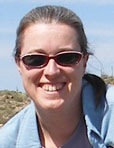
Kaatje Kraft, M.A./M.S.
Kaatje has been teaching introductory geoscience courses to primarily non-majors since 1999. One of her primary goals as an educator is for students to understand how the content of their required general education science credit course may apply to their future goals in order to create a more scientifically literate citizenry.
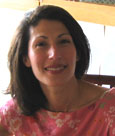
Natalie H. Kuldell
Natalie is an Instructor in the Division of Biological Engineering at the Massachusetts Institute of Technology. She is currently developing and teaching laboratory classes required for students interested in the planned Biological Engineering major, an emerging discipline that uses engineering principles to approach biological questions, at MIT. From 1997 through 2003, Natalie was a faculty member at Wellesley College where she designed and taught investigative laboratories in molecular genetics, cell physiology and cell biology. She also served as lecturer for the accelerated class in introductory cell biology. Natalie's research interest is eukaryotic transcription, specifically how the elongation phase of transcription is regulated. She conducts her research at MIT as well as at Harvard Medical School where she is a visiting scientist in the laboratory of Dr. Fred Winston.
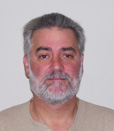
Norman G Lederman, Ph.D.
Dr. Norman G. Lederman is currently Chair and Professor of Mathematics and Science Education at the Illinois Institute of Technology. He has taught a full range of graduate (Masters and Doctoral) courses in secondary science education and supervised teaching interns. Dr. Lederman received his Ph.D. in Science Education from Syracuse University (1983); M.S. in Secondary Education from Bradley University (1977); M.S. in Biology from New York University (1973); B.S. in Biology from Bradley University (1971). Dr. Lederman is internationally known for his research and scholarship on the development of students\\\' and teachers\\\' conceptions of nature of science and scientific inquiry. He has also studied preservice and inservice teachers\\\' knowledge structures of subject matter and pedagogy, pedagogical content knowledge, and teachers\\\' concerns and beliefs. Dr. Lederman has been author or editor of 10 books, including an elementary science teaching methods textbook. He is editor of the recently published Handbook for Research on Science Education. He has written 15 book chapters and published over 200 articles in professional refereed journals. In addition, Dr. Lederman has made over 500 presentations at professional conferences and meetings around the world.
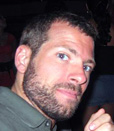
Nathan H Lents, Ph.D.
Professor Nathan H. Lents is a tenured associate professor of molecular biology at John Jay College of the City University of New York, a visiting professor at the University of Lincoln (UK), and author of "Not So Different: Finding Human Nature in Animals" (Columbia University Press, 2016). Professor Lents conducts research in three areas: forensic botany, the human microbiome, and teaching/learning biology at the college level. His work has been funded by the NIH, NSF, US Dept. of Ed, and the Susan G. Komen Breast Cancer Foundation. He also maintains The Human Evolution Blog and authors most of its content.
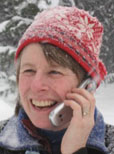
Cathy Manduca, Ph.D.
Cathy is a Director of the Science Education Resource Center at Carleton College where she is involved in a variety of projects that support improvements in undergraduate education and geoscience education (K-gray). Her work includes organizing workshops and other activities for faculty and educators of all types, developing web-resources that link teaching resources, pedagogy and discussion, and researching learning by geoscientists, faculty and students. Topics of focus include bringing research results on teaching and learning into broader use in the geosciences, understanding geoscience expertise, and building strong geoscience departments. Much of this work contributes to the National Association of Geoscience Teachers (NAGT), and the National Science Digital Library (NSDL). Currently, she serves on the Sigma Xi Education Committee, as chair of the Education Committee of the American Institute of Physics, and as the Executive Director of NAGT. She also remains very interested in the petrologic and structural evolution of western Idaho and its implications for the growth of continental crust, as well as the interactions between policy and geology required to maintain a clean water supply for Olmsted County, MN.
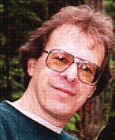
Alfred L. Rosenberger, Ph.D.
Alfred has worked at the Smithsonian Institution's National Zoological Park conducting research on the conservation biology of monkeys, and at the Smithsonian's National Museum of Natural History, as a Digital Curator for electronic educational outreach. Before he was an Associate Professor of Anthropology at the University of Illinois at Chicago. He has developed educational kiosks and websites focusing on the biology of mammals as well as new research methods involving three-dimensional virtual specimens. His scientific research emphasizes the evolutionary history and adaptations of South and Central American monkeys and the origins of anthropoid primates, which is the taxonomic group to which we belong with monkeys and the more conventional apes. He is forever fascinated by the challenge of creating a multi-disciplinary story of primate evolution. He learned early on, while working toward a Ph.D in Biological Anthropology at the City University of New York, that the study of skulls, skeletons and teeth of museum specimens and fossils makes a lot more sense when one also spends time chasing monkeys in the rain forest to learn what the animals actually do.
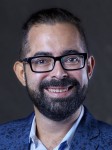
Edgardo Sanabria-Valentin, Ph.D.
Dr. Edgardo Sanabria-Valentín received a B.S. in industrial microbiology from Universidad de Puerto Rico-Mayagüez. He completed doctoral studies at New York University – Sackler Institute of Graduate Biomedical Sciences. There he worked with Dr. Martin Blaser studying the molecular mechanisms that Helicobacter pylori, a bacterium that lives in the human stomach, has evolved to persist in that environment for the lifespan of its human host. He completed post-doctoral training at Harvard Medical School in Dr. Roberto Kolter's lab and worked for several years in various biotechnology startups developing diagnostic tools for the food industry. Dr. Sanabria-Valentín is currently the Associate Director of the Program for Research Initiatives in Science and Math at John Jay College of Criminal Justice, in addition to serving as a Research Coordinator in its Department of Sciences and as the Health Careers Advisor Lead for John Jay College.
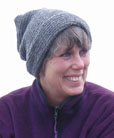
Judy Scotchmoor
Judy Scotchmoor taught middle school math and science for 25 years. She is currently assistant director of the UC Museum of Paleontology in charge of education and public programs. She has been the Project Coordinator on five NSF-funded projects: Explorations Through Time, Geosciences in Alaska, The Paleontology Portal, Understanding Evolution, and Understanding Science.
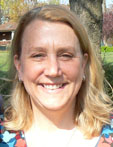
Sandra S. Swenson, Ed.D.
She is a lecturer of Natural Science and Environmental Science at John Jay College where she uses Visionlearning extensively. It is perfect for undergraduate non-science majors. Her research interest is in student understanding of data, especially as seen in digital data maps.
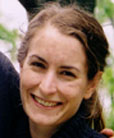
Anna Thanukos, Ph.D.
Anna is Principal Editor at the UC Berkeley Museum of Paleontology. A former community college biology teacher, she is a primary author for the Understanding Evolution (http://evolution.berkeley.edu/) and Understanding Science (http://undsci.berkeley.edu/) websites, as well as an editorial board member and contributing author of Evolution: Education and Outreach.
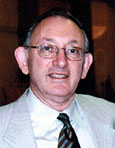
Morris S. Zedeck, Ph.D.
Morris received his Ph.D. in Pharmacology from the University of Michigan in 1965. He spent two years as a postdoctoral fellow and one year as assistant professor in the Department of Pharmacology at Yale University School of Medicine. He worked at the Memorial Sloan-Kettering Cancer Center with a joint faculty appointment at the Cornell University Graduate School of Medical Sciences for approximately 15 years, where he studied the pharmacological and toxicological effects of cancer chemotherapeutic agents, of chemical carcinogens and of other drugs and chemicals. Morris has published approximately 75 papers and abstracts which include original scientific research, chapters, reviews and an edited book. Currently, he is President of the Zedeck Advisory Group, Inc., New York, and serves as consultant to attorneys and as an expert witness in the areas of pharmacology and toxicology in criminal and civil matters. He recently retired from the Department of Sciences at the John Jay College of Criminal Justice.

 Post
Post Tweet
Tweet Send
Send